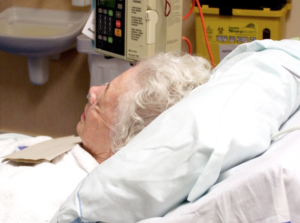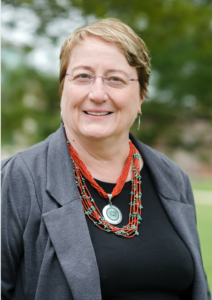caption id=”attachment_1852″ align=”aligncenter” width=”300″] Stock image[/caption] by Joyce A. Shelton, Ph.D.
Stock image[/caption] by Joyce A. Shelton, Ph.D. Professor of Biology Emerita Trinity International University In contemporary western culture, autonomy (self will, personal choice) is the supreme value. This value is no better exemplified than in the promotion of self-controlled death through legalization of physician assisted suicide. Physician Assisted Suicide (PAS) means a physician provides a patient-requested lethal medication that their patient can then use to end his or her life. Most recently, we have witnessed the legalization of PAS, also termed Medical Aid in Dying (MAiD), to ever ballooning proportions in Canada and now in a growing number of U.S. states. Committing suicide is legal in the United States, but “assisting another person to complete suicide” is a felony crime in many states. Even so, there are eleven states where PAS is now legal and there are fifteen states considering legislation to legalize it this year. Most of these laws allow PAS only for those who are terminally ill; however, two states, California and Colorado, are already amending their laws to make them less restrictive. Should we be concerned about the rapid expansion of physician-assisted suicide legalization in the United States? What should we do about it? A 2018 Gallop Poll suggested that only a small majority (54%) of Americans believe that PAS is morally acceptable. This percentage is even less for conservatives (39%) and church-attendees (26%). But, despite moral concerns, a higher percentage, 65% overall, think PAS should be legalized. This discrepancy is likely due to a prevailing American principle best phrased as “I wouldn’t do it, but others should have the freedom to choose for themselves.” In Canada, the debate over PAS/MAiD laws quickly turned to “rights rhetoric” claiming an autonomous right to die. No such right actually exists, but such language shuts down healthy debate about what is morally, clinically, and humanly the right thing to do, and moves the issue directly to guilt-motivated, affirmative vote. Preserving freedoms is all well and good, but laws are also made to protect us–not just restrict our choices. Enacting laws that undo the restrictions on assisted suicide don’t just give freedom to choose death; they quickly morph into social pressure to choose death. It might be helpfully informative to cite some of the potential concerns that Canadian voters voiced when PAS/MAiD laws were first being considered. Most of these concerns have become realities in Canada:
Professor of Biology Emerita Trinity International University In contemporary western culture, autonomy (self will, personal choice) is the supreme value. This value is no better exemplified than in the promotion of self-controlled death through legalization of physician assisted suicide. Physician Assisted Suicide (PAS) means a physician provides a patient-requested lethal medication that their patient can then use to end his or her life. Most recently, we have witnessed the legalization of PAS, also termed Medical Aid in Dying (MAiD), to ever ballooning proportions in Canada and now in a growing number of U.S. states. Committing suicide is legal in the United States, but “assisting another person to complete suicide” is a felony crime in many states. Even so, there are eleven states where PAS is now legal and there are fifteen states considering legislation to legalize it this year. Most of these laws allow PAS only for those who are terminally ill; however, two states, California and Colorado, are already amending their laws to make them less restrictive. Should we be concerned about the rapid expansion of physician-assisted suicide legalization in the United States? What should we do about it? A 2018 Gallop Poll suggested that only a small majority (54%) of Americans believe that PAS is morally acceptable. This percentage is even less for conservatives (39%) and church-attendees (26%). But, despite moral concerns, a higher percentage, 65% overall, think PAS should be legalized. This discrepancy is likely due to a prevailing American principle best phrased as “I wouldn’t do it, but others should have the freedom to choose for themselves.” In Canada, the debate over PAS/MAiD laws quickly turned to “rights rhetoric” claiming an autonomous right to die. No such right actually exists, but such language shuts down healthy debate about what is morally, clinically, and humanly the right thing to do, and moves the issue directly to guilt-motivated, affirmative vote. Preserving freedoms is all well and good, but laws are also made to protect us–not just restrict our choices. Enacting laws that undo the restrictions on assisted suicide don’t just give freedom to choose death; they quickly morph into social pressure to choose death. It might be helpfully informative to cite some of the potential concerns that Canadian voters voiced when PAS/MAiD laws were first being considered. Most of these concerns have become realities in Canada:
- Protection of vulnerable persons. One of the most often expressed concern. The elderly, children and people with disabilities may be pressured to choose suicide rather than burden caregivers or families.
- People with mental health issues, especially depression, counseled to choose PAS/MAiD as an alternative to increasing treatment, support and understanding of their underlying conditions.
- Support for the long term care of the elderly, those with chronic disease withdrawn by healthcare systems, insurance providers.
- Less support for palliative care for those who want to die naturally. Palliative care successfully eases end-of-life distress and pain. However, some actually want to classify PAS/MAiD as palliative care.
- The economically disadvantaged (even the homeless) encouraged to choose PAS/MAiD rather than continue a poor quality of life existence.
- PAS/MAiD urged prematurely upon potential organ donors
- Patients encouraged to choose PAS when their cost of health care becomes too great.
- Loss of trust in physicians who will be seen as potential agents of death, rather than agents of healing and comfort.
- Physicians’ rights of conscience violated if laws require their participation.
- Laws will continue to reduce restrictions and expand access beyond the terminally ill and will move from PAS to euthanasia (in which the physician, not the patient, directly administers the lethal drug that ends the patient’s life).
These concerns constitute both a prognostication and a warning to the United States. If we are to bring light, an influence for what is right and good, into our increasingly dark, death-infatuated culture, if we truly love our family, our friends, and our neighbors, we need to speak the truth about PAS. PAS is promoted as loving and compassionate. It is neither. Granted, it is beyond difficult to say to those in pain, and there are many kinds of pain, that suicide is not the answer; but love is encouraging them to surrender their control to God, the giver and sustainer of our lives, the One who lovingly determines the length of our days. Compassion is pointing them to resources that can help them manage their pain. It is learning how we can better alleviate the hopelessness, the suffering, and the depression that can lead someone to consider suicide. Love is not persuading an ever expanding number of vulnerable people to choose suicide, for whatever reason, over life. Love is giving them reasons to live. I wonder if we have the courage of our moral convictions to impede the slippery progression of these pernicious laws that glorify death in the name of personal choice even as they extinguish the precious lives of defenseless fellow human beings. If so, perhaps it is time to express our objections to legalized physician assisted suicide to our elected officials before it is too late. Here is a place to start: see what is happening in your state; contact your legislators. The Tennessee Center for Bioethics & Culture encourages respectful discussion and debate of bioethics issues, and strongly supports freedom of speech. To that end, we invite and welcome other voices to the discussion of bioethics issues. Invited authors’ views are their own, and do not necessarily represent those of The Tennessee Center for Bioethics & Culture.
